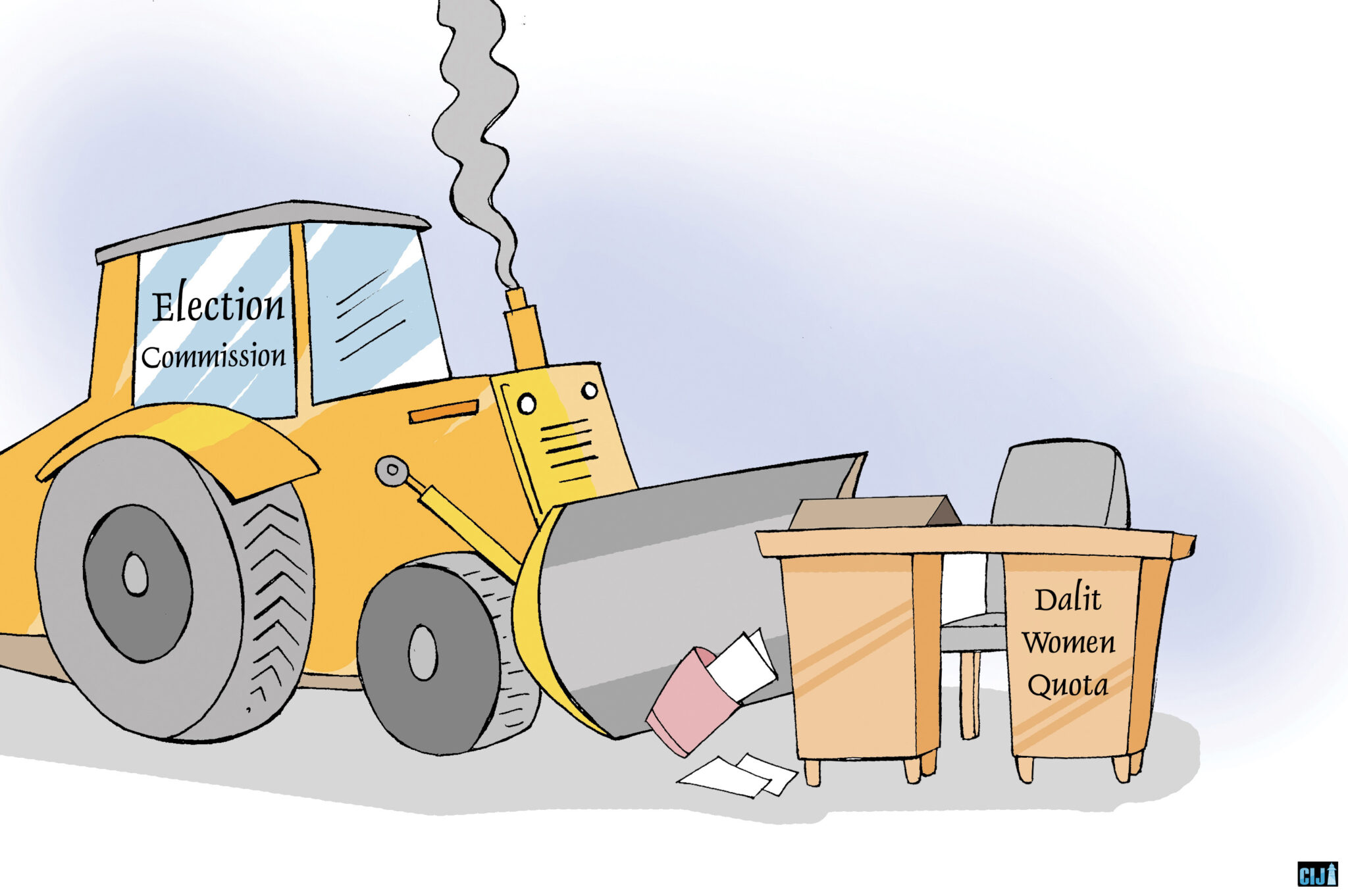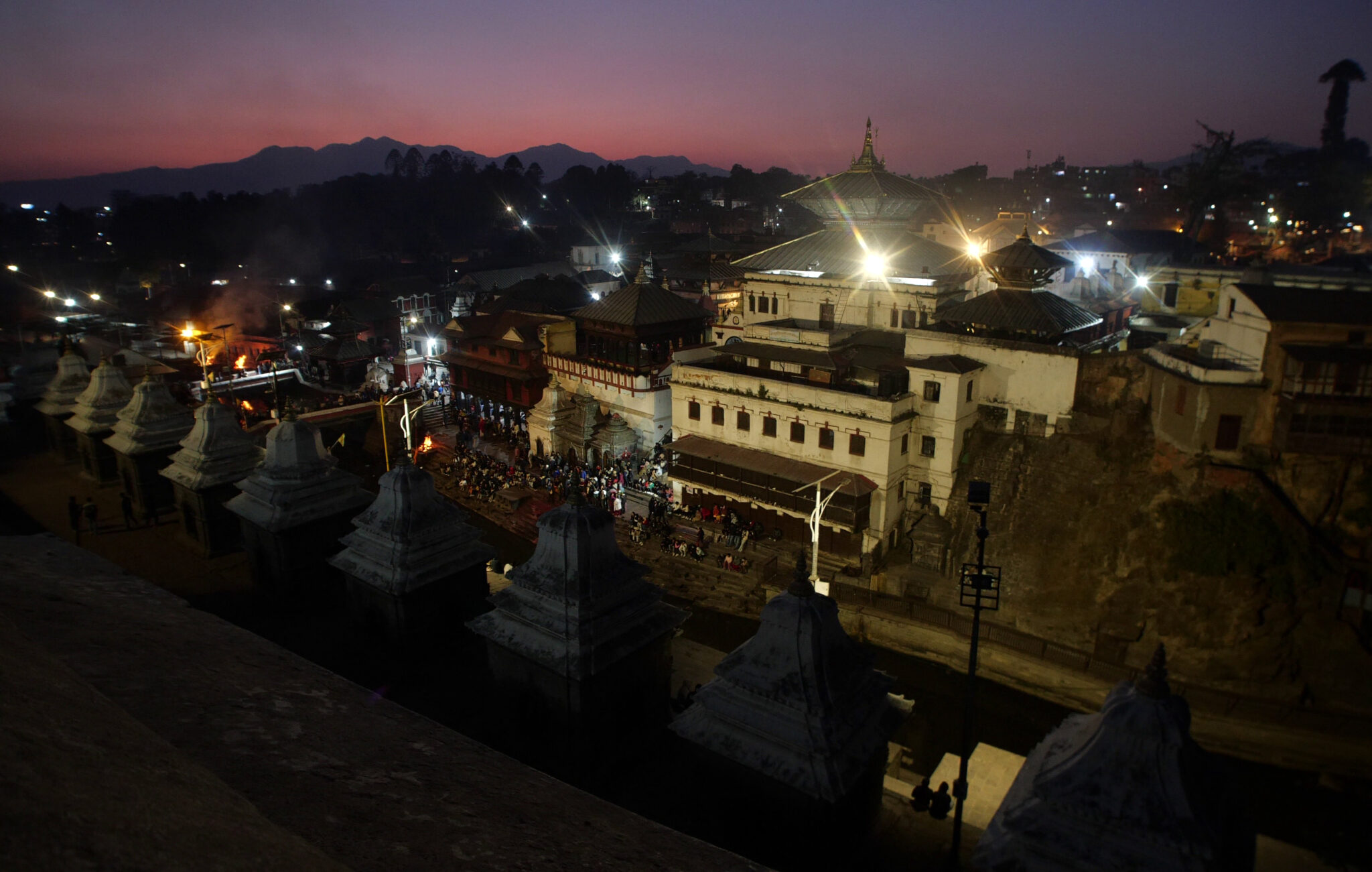Although the constitution hands over all authority related to the administration of education up to the secondary school level to the local government, a federal government body’s obstruction prevents them from doing their job of improving the quality of education.
Mukesh Pokhrel | CIJ, Nepal
Khandeshwari Secondary School in Api Himal Rural Municipality had two Social Studies teachers. Therefore, the village municipality decided to transfer Bal Bahadur Pal, a lower-level Social Studies teacher working at the school, to Saraswati Basic School in December 2020. Similarly, the month after that, it decided to transfer Govardhan Dhami, a primary school teacher working at Saraswati, to Tamakhani Bhagwati Basic School.
The rural municipality’s education department wrote to the District Education Development and Coordination Unit, Darchula, on April 2, 2021, to inform it about the transfers. However, on August 18, 2021, the unit withheld the decision saying that as the Education Act 1971 and its rules (2002) are still in force, the right to appoint and transfer temporary teachers was its, as per Rule 99. The unit then wrote to all nine local governments in Darchula, including Api Himal, re-asserting its sole right to transfer teachers.
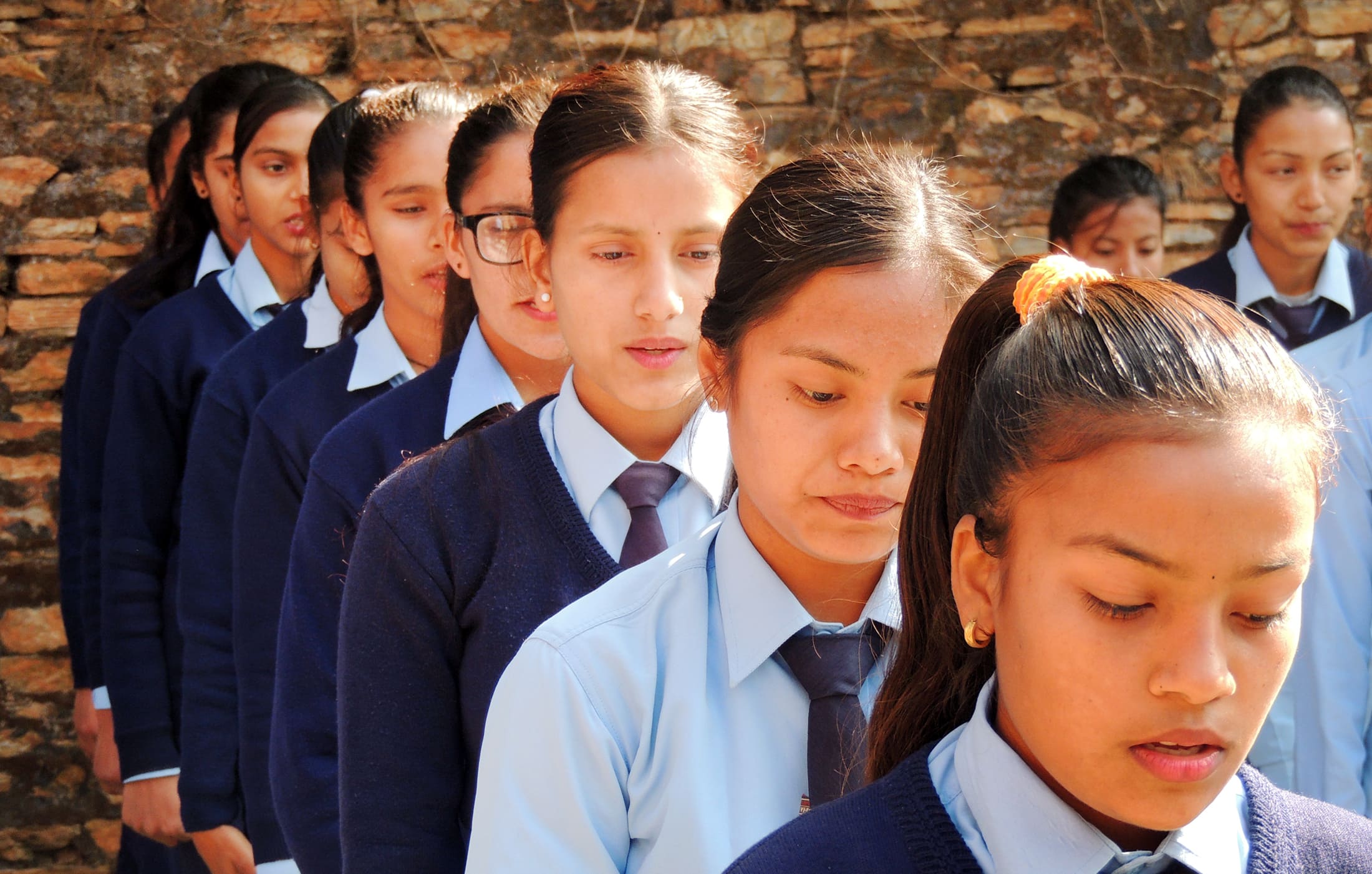
Photos: Krishna Malla
Schools at the grassroots couldn’t be reformed as expected as the decisions passed by the rural municipality to match teachers with vacant positions couldn’t be implemented due to obstructions from the central government, said Api Himal Rural Municipality Chairman Dharmananda Singh Manyal.
The situation of Shubhakalika Rural Municipality, in Kalikot, Karnali Province, is no different from that of Api Himal in Sudurpaschim. As Janajyoti Secondary School of Shubhakalika-3 employed three Nepali teachers, the rural municipality decided to transfer one to Janata High School, Chhati, and another to Kalika High School, Balachur in January 2021. However, the education development and coordination unit concerned was least bothered about the decision.
According to the constitution and the Local Government Operations Act 2017, the local government is not bound to accept the decision of the education development and coordination unit. However, the provisions in the constitution haven’t been implemented everywhere. Ghanshyam Pandey, treasurer of the Nepal Municipal Association, says that although some local governments have marched ahead, work has been stopped in many places due to the education development and coordination unit.
The constitution lists basic and secondary education as the sole ambit of the local level. According to the same provision, many local governments have prepared acts and rules related to education for the operation and regulation of schools. However, due to the inefficiency of the unit, those acts and regulations haven’t been implemented.
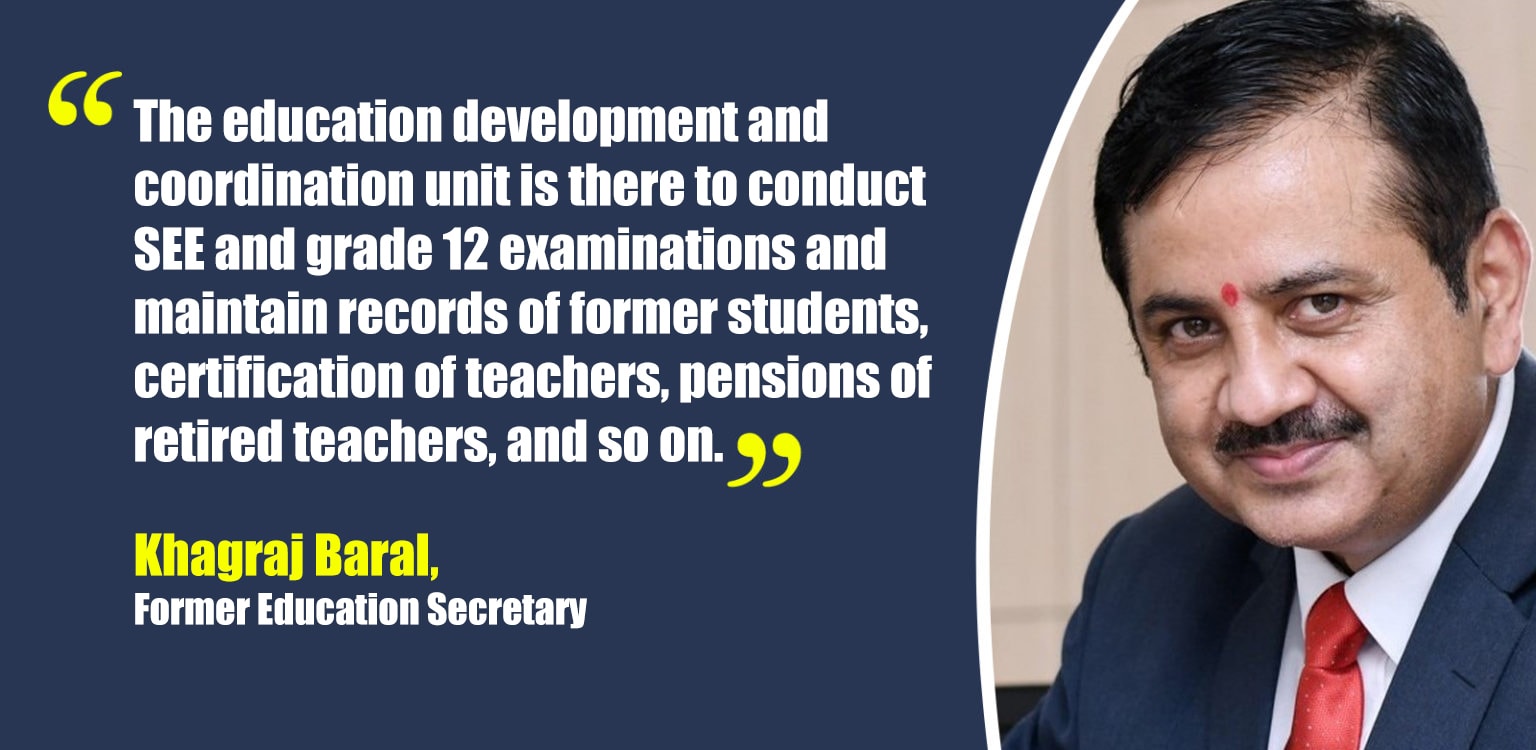
The Local Government Operation Act has also given local governments the right to transfer teachers. The Act states that the local government shall frame policies, laws, norms, and plans as well as implement, monitor, evaluate, and regulate early childhood development and education, basic education, parental education, non-formal education, open and alternative continuous learning, community learning and special education.
The law clearly states that the local government shall be responsible to issue permits to establish community, institutional, guthi, or cooperative schools and to run, manage and regulate them. They shall also chart plans to provide technical and vocational education as well as operate, oversee, monitor, and evaluate schools teaching such skills. Similar is the case with schools that teach the local mother tongue. The law authorises the local government to manage the property of schools that are shut down or have entered into a merger with another school.
Ghanshyam Pandey, treasurer of the Nepal Municipal Association and mayor of Tulsipur sub-metropolitan municipality of Dang, alleges that the centre has directly interfered in the affairs of the local government. According to Pandey, the main problem is that the responsibility of school education has not been formally transferred to the local governments. “The district units transfer teachers without our knowledge,” says Pandey. “It is also difficult to send teachers on deputation as they are not under the local government’s purview.” Therefore, the responsibility of managing teachers, students, and parents should be given to the local governments, he said.
Problems at all local governments across the country are no different than what Pandey said. Mahesh Rai, chairman of Salpasilicho Rural Municipality in Bhojpur, Province-1, also says central authorities are exercising the right to transfer teachers. The local government has been unable to take any action against teachers who don’t do their job. “There are a lot of problems in the education sector, ” says Rai. “All we can do is pay the teachers’ salaries. We don’t have the authority to punish anyone not doing their job.”
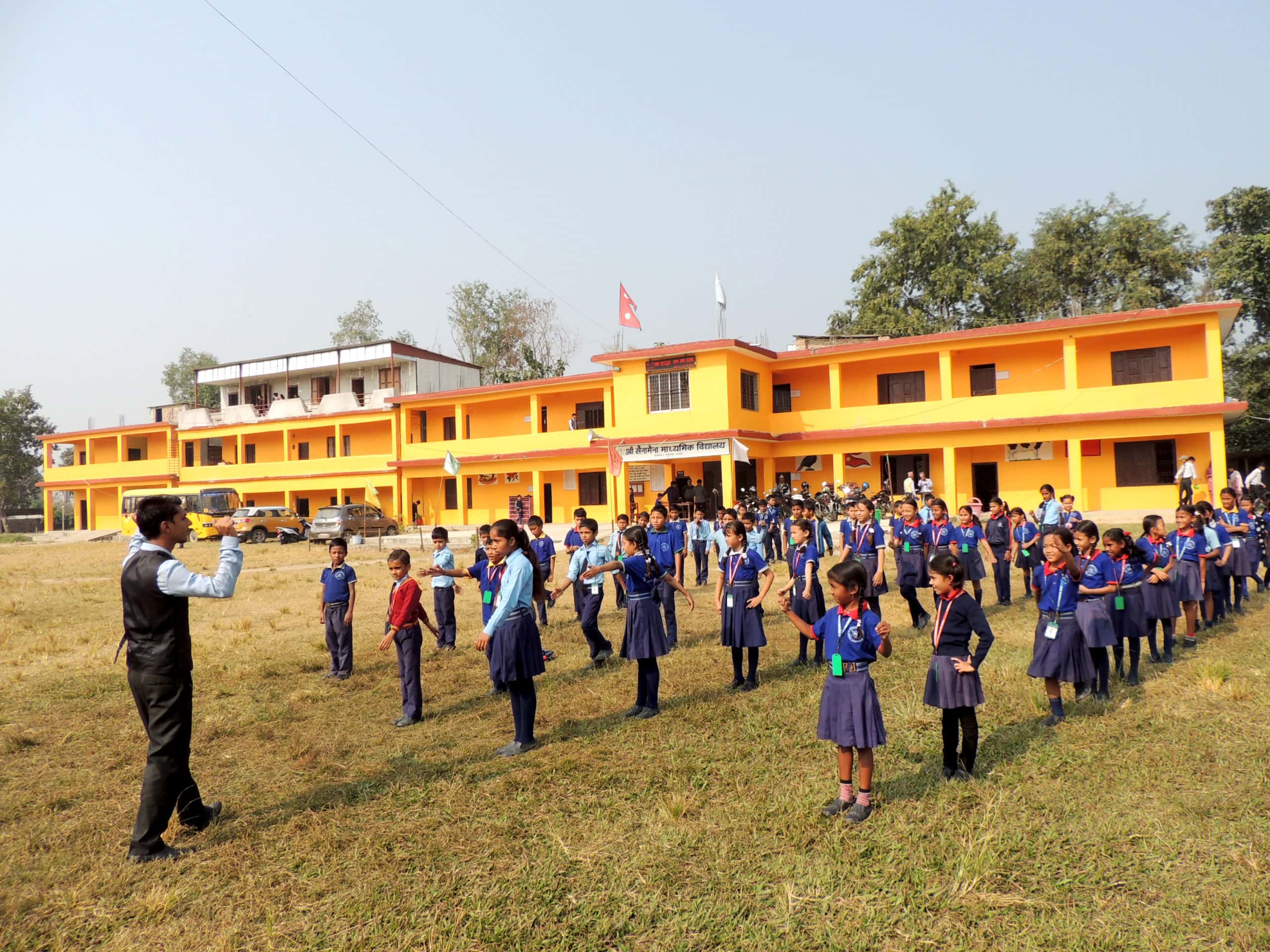
Salpasilicho Rural Municipality had tried to take action against a teacher who sent his children to private schools neglecting the education of government schools. Chairman Rai says that he was under pressure from all quarters when the salary of a teacher was withheld. He says, “I will present myself wherever I need to, but I will not pay the salary of those who do not work.”
Amachok Rural Municipality decided to shuffle teachers to fill vacant positions in July 2021. However, the Education Development and Coordination Unit, Bhojpur, halted the process, says rural municipality chairman Ashok Rai. He says, “After the coordination unit wrote to the school not to implement the decision, we withdrew our decision as we didn’t want a conflict.”
Ash Bahadur Pun Magar, chairman of Sunchhahari Rural Municipality, Rolpa, Lumbini Province, also shared his experience. “The local government has done nothing but pay teachers,” said Pun Magar. “In practice, education is not under our authority.”
Coordination, not interference
Although the constitution states that school education up to the secondary level falls under the sole authority of the local government, the district offices under the federal government are least interested in implementing the provisions.
According to the new constitution, the authority was passed on to the local government as district education offices were abolished. But according to the new arrangement, the education development and coordination units were set up under the auspices of the centre to coordinate and cooperate with the local government.
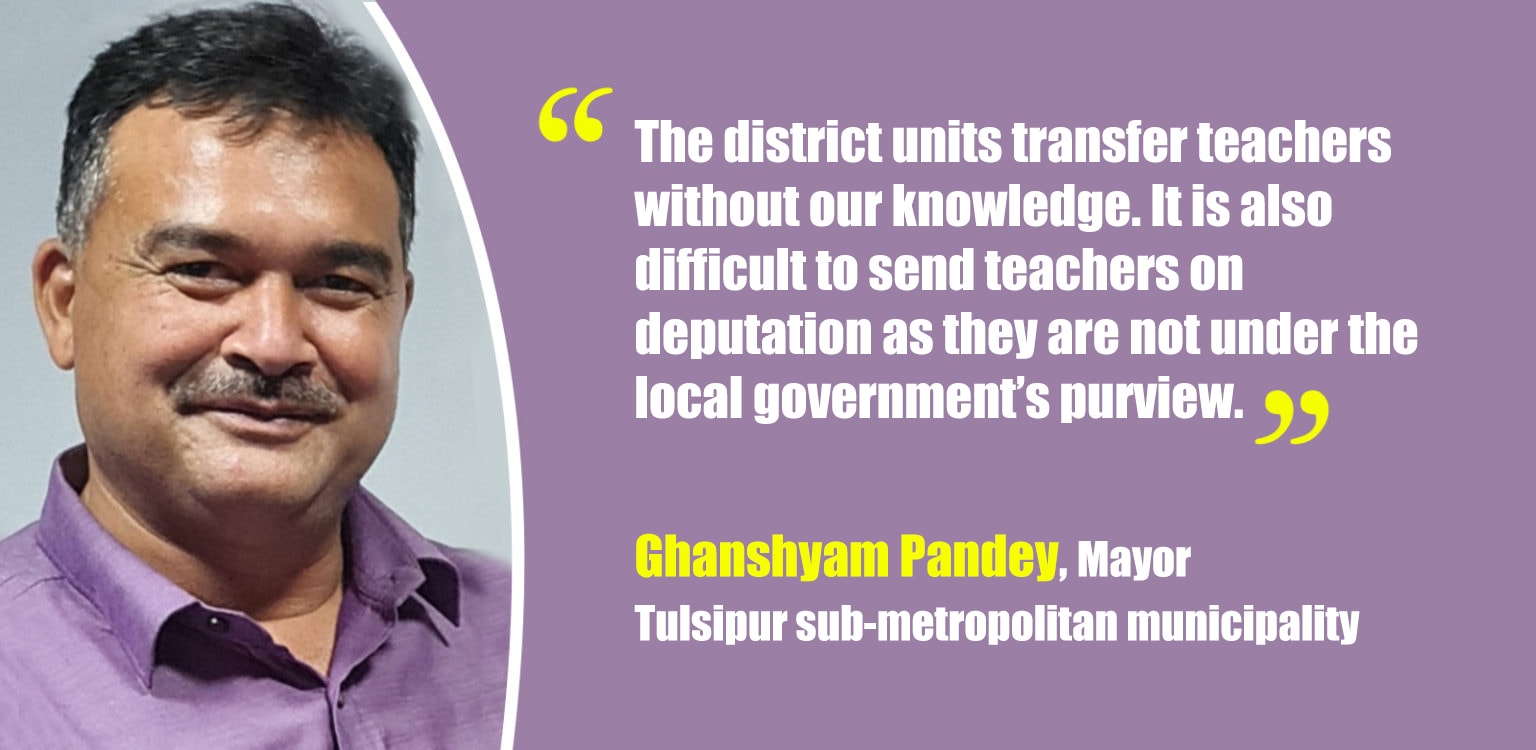
The unit under the federal government is now interfering in the affairs of the local level. Hari Lamsal, joint secretary at the Ministry of Education, says that the role of the office such as the education development and coordination unit is not to interfere, but it is to coordinate and facilitate. “There may be problems in some places,” he says.
Former Education Secretary Khagraj Baral also says that the authority to manage the right teachers lies with the local government. “The education development and coordination unit is there to conduct SEE and grade 12 examinations and maintain records of former students, certification of teachers, pensions of retired teachers, and so on,” says Baral.
Although the idea was to run the units as service centers, it seems that the federal government is ready to retain the authority to administer school education through the units.
Api Himal Rural Municipality Chairman Dharmananda Singh Manyal complains that the education development and coordination unit has not even maintained records of teachers appointed by the rural municipality. He says, “We appointed seven teachers on contract on different dates between 2019 and 2021. However, the education unit did not document the appointment of teachers appointed by the rural municipality.”
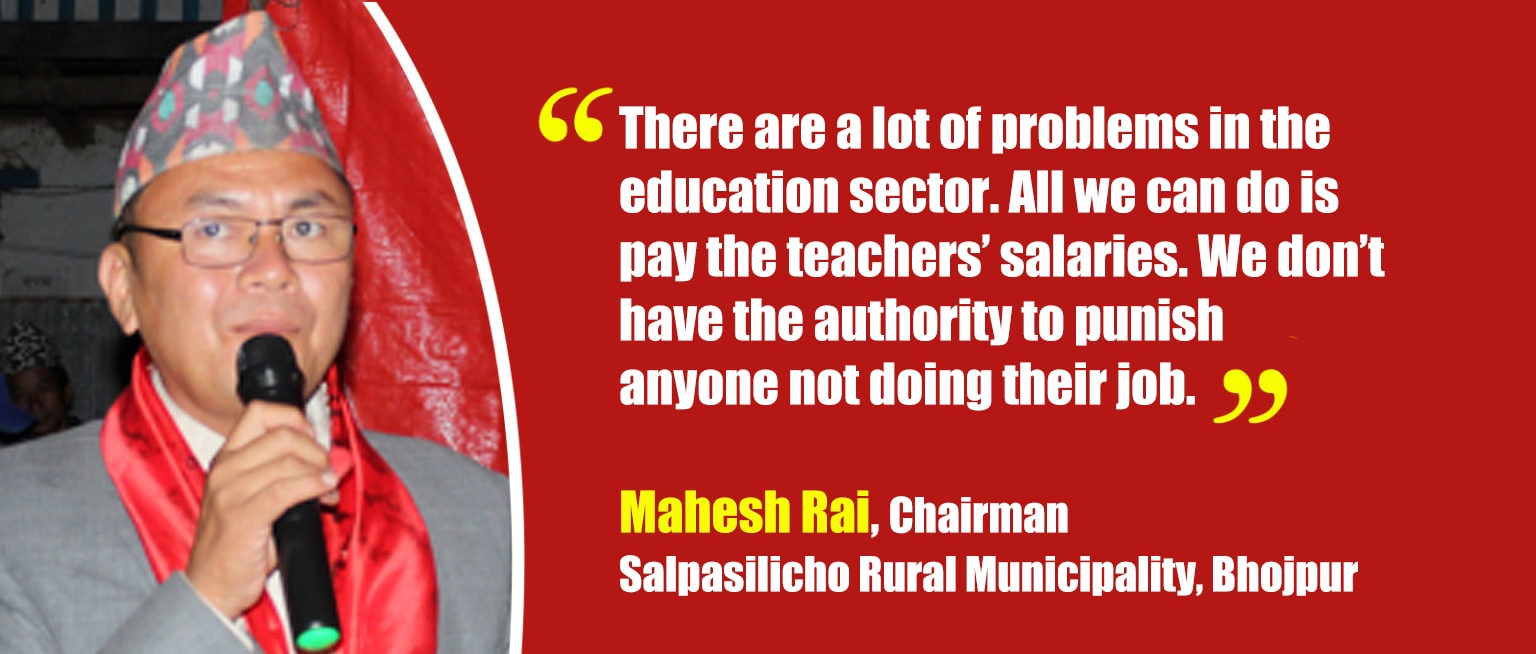
According to Manyal, the unit has interfered in the implementation of the authority provided to the local government by the constitution.
Darchula’s Naugad Rural Municipality Chairman Premsingh Dhami says that the coordination unit recommends the federal government for grants by prioritising programs different from those recommended by the municipality. He alleged that the unit recommended two schools for grants under the President’s Educational Reform Programin the fiscal year 2020/21 without recommending schools prioritised by the rural municipality.
Disputes between the units and the local governments have escalated and some local governments have withheld teachers’ salaries in retaliation.
According to Mahesh Rai, chairman of Salpasilicho Rural Municipality of Bhojpur, a teacher transferred by the Education Development Coordinating Committee without informing the rural municipality hasn’t been paid for two months. “The coordination unit does not have the right to do its own thing. We have to work in coordination,” he said.
Need for federal education Act
According to former education secretary Khagraj Baral, the current problems have arisen due to the absence of the Federal Education Act. Baral says that even though the law was drafted when he was in office, the government hasn’t prioritised it.
After all, this is a problem facing all local governments at present. Not only the district-level education development and coordination units under the federal government but also the teachers are in favor of the Education Act 1971.
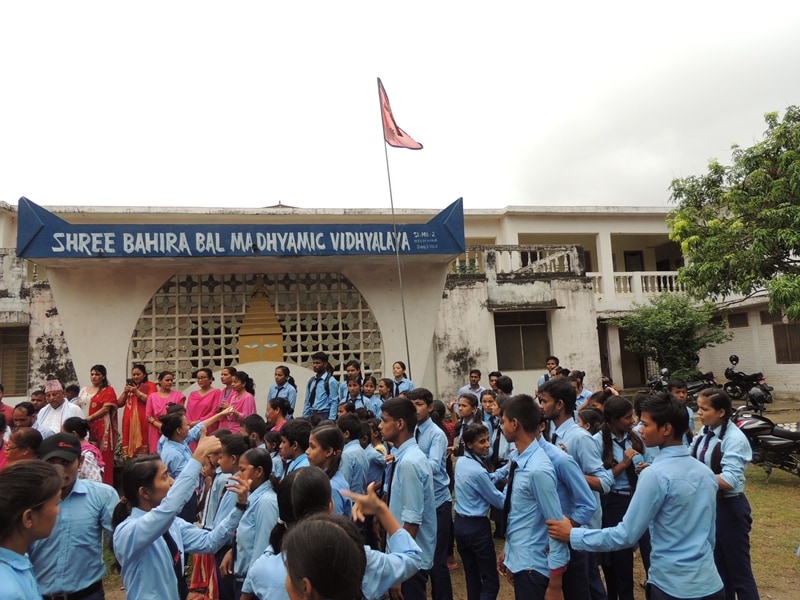
However, the elected representatives are of the view that a new Education Act should be passed to incorporate the provisions of the new constitution.
Hari Lamsal, joint secretary at the Ministry of Education, admits that there is some confusion due to the absence of the Federal Education Act. He said that the ministry is working to prepare the Act. According to former education secretary Baral, the delay in drafting the law can also be attributed to obstructions by the teachers’ federation.
The teachers’ federation, which stands against the devolution of education-related powers to the local government, says that the governments at all three levels should have a role in school-level education.
The federation’s General Secretary Laxmikishore Subedi argues that the local government can’t be entrusted with the responsibility of running the entire education system. He says, “The local governments can’t manage education up to class 12.”
Even though Subedi, a leader of a professional organisations, put forward such an argument, the main issue is that they want to remain relevant in the new setup. In a memorandum submitted to Education Minister Krishna Gopal Shrestha by the Teachers Federation on May 3, 2021, the federation demanded that authority regarding the development of school curriculum as well as the appointment of teachers, their transfer, the payment of their salaries, and their record-keeping remain under the federal government when the new law is enacted.
The demand of the teachers’ federation that the transfer of teachers should be made by the education unit conflicts with the provisions of the constitution. Former Education Secretary Khagraj Baral says that teachers will automatically fall under the ambit of the local government after authority related to the administration of school education up to the secondary level is formally transferred to the local governments.

